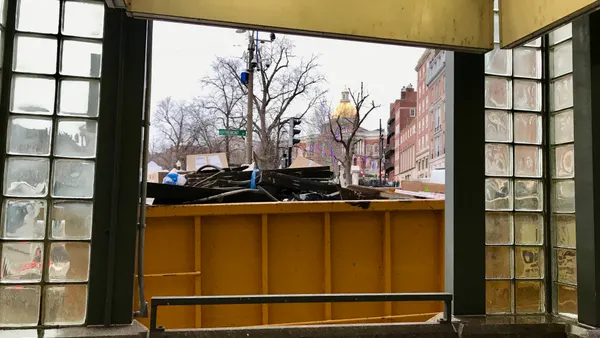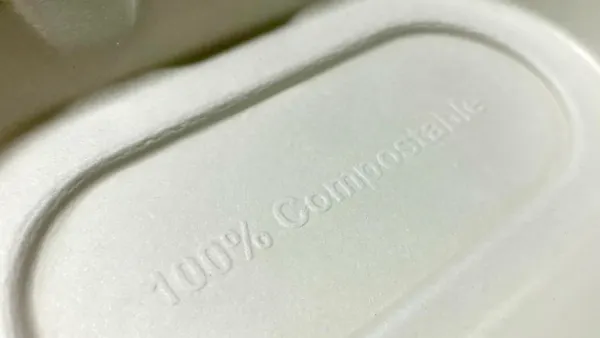Dive Brief:
- A new study published in the Journal of Marketing Research from two Boston University academics finds that decisions around recycling may be more personal than previously realized, as explained in Harvard Business Review.
- In scenarios such as using plastic cups at a party, napkins at dinner or scrap paper for math equations participants felt more comfortable with their waste when the socially positive option of recycling was available.
- Past studies by one of the authors also found that people were more likely to recycle items that hadn't been distorted (dented cans, torn paper) and were more likely to recycle items linked to their identity (a coffee cup with their name on it).
Dive Insight:
While it may seem counterintuitive, the relationship between waste generation and recycling behavior can also be seen in some cities. Past data from New York shows that overall waste generation per person is similar between neighborhoods, regardless of their diversion rates. Some say this makes the case for more education around reduction and reuse rather than just recycling.
As shown by the results of a recent Pew Research Center survey, less than one-third of U.S. residents think their community's social norms "strongly encourage" recycling and reuse. Where this is encouraged it could translate to education around carrying refillable water bottles and reusable bags on a smaller scale, or purchasing used items on a larger scale. For example, textiles or electronics can have long lives with many users when collected and maintained properly.
Further exploration of the link between recycling options and behavior is also a big focus for food waste right now as overall public awareness of the issue remains mixed. One recent study found an interesting link between date label language and willingness to waste. As food waste diversion and composting become more mainstream the possibility that people think recycling absolves excess consumption will be a key one to watch.









